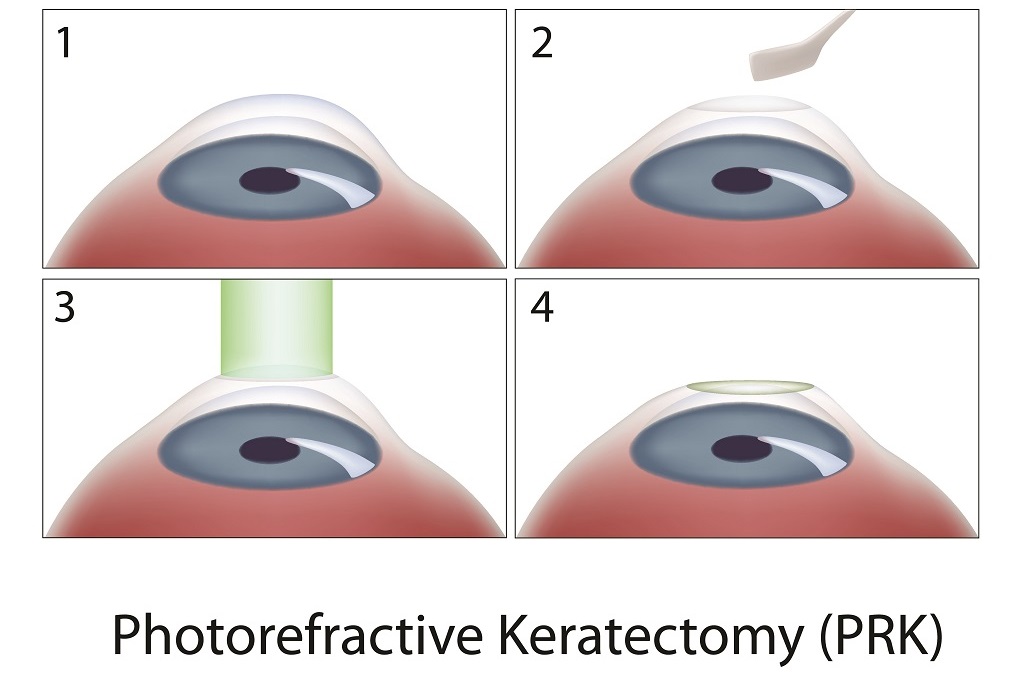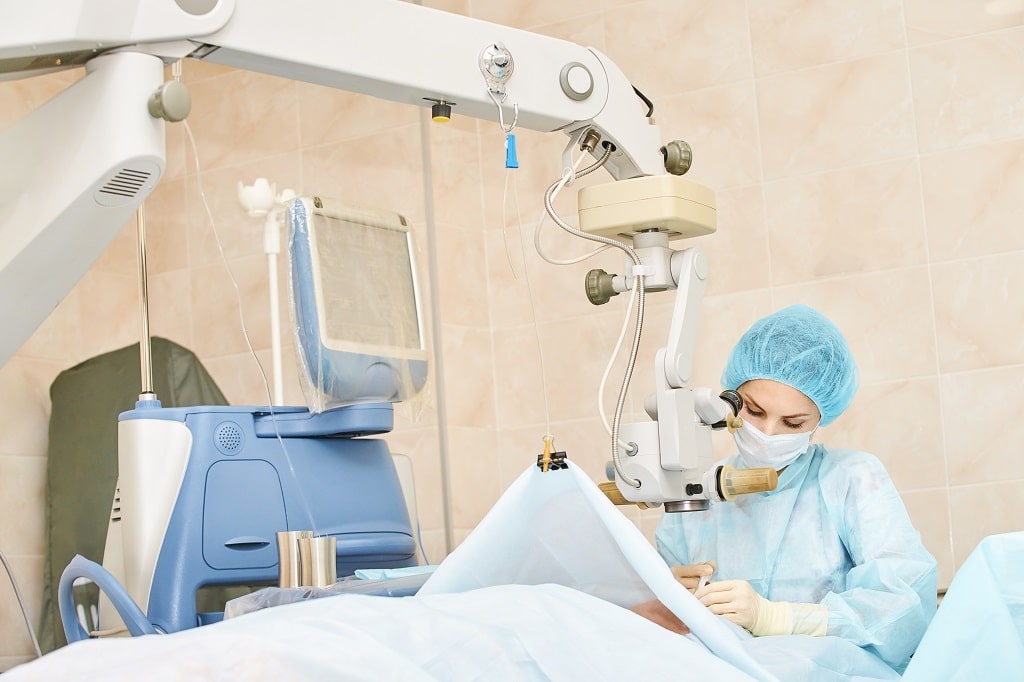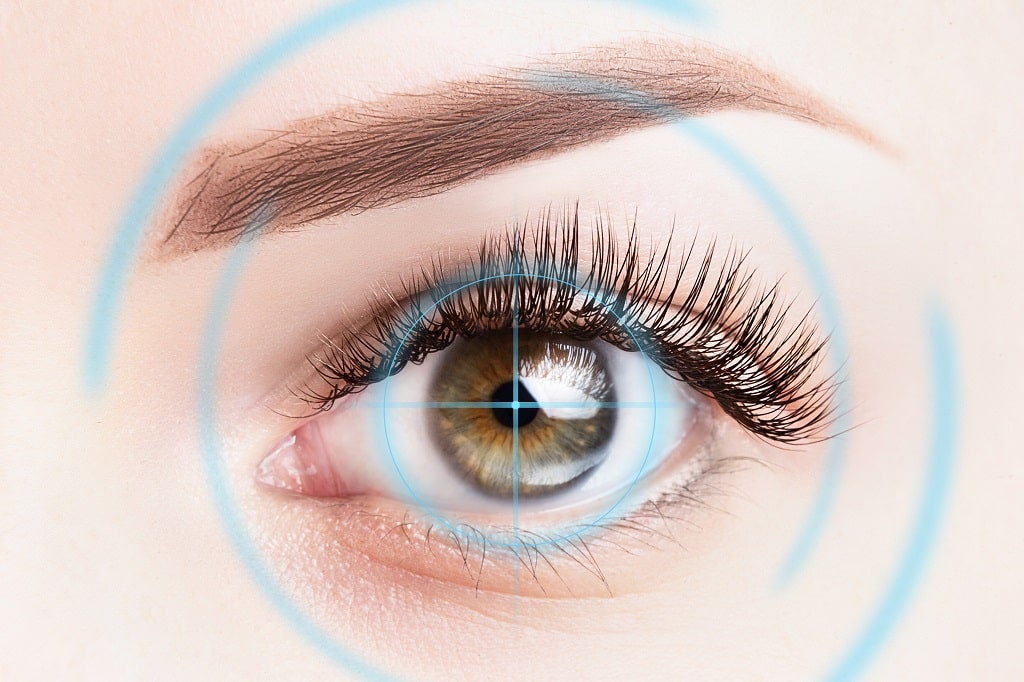
Updated: May 11, 2023
Photorefractive keratectomy (PRK) also known as Advanced Surface Ablation (ASA) surgery is a corneal laser vision correction surgical procedure. Laser vision correction surgery corrects a refractive error which is where your eye does not bend light correctly and one can not see clearly. An important question for someone interested in surgery is to understand how PRK works. PRK works by changing the shape or curvature of the cornea or front part of the eye. When this is done light rays come into perfect focus on the retina and images are then viewed clearly.
Good candidates for PRK procedures are above age 18 and have a refractive error that requires that they wear glasses or contact lenses. When a person tires of contacts and glasses and would like to minimize or possibly eliminate their use laser vision correction surgery in the form of PRK, SMILE or LASIK can be considered as an option. Refractive errors that can be corrected with PRK include:
Good candidates for PRK should meet certain requirements and they include:

PRK can be considered for patients that have nearsightedness, farsightedness, or astigmatism and who want to minimize or eliminate their need for glasses and or contact lenses. A complete ocular evaluation with the eye surgeon and team should determine if one is a good candidate and their expectations after surgery can be achieved with high probability.
Prior to PRK or ASA eye treatment, several recommendations are worth considering. One should complete the following.
Several issues should be considered on the day of your PRK / ASA surgery.

An expected and frequently asked question is “How long does PRK take?“. The procedure itself takes about 10 minutes per eye but expect to spend about 2 hours at the office the day of your procedure. During your procedure you can expect the following:
Understanding what to expect with PRK healing time and PRK post-op care will help you prepare for your procedure. Several PRK recovery tips can be helpful including:

There are many advantages of PRK and they include:
At the time of your decision to undergo surgery, your doctor and team should review PRK risks, benefits, and alternatives to PRK surgery.

Immediately after your surgery and out to 5 days one can expect to have light sensitivity, tearing, foreign body sensation, and pain. When the surface cells heal these should all improve significantly. You should feel comfortable returning to full activities when the bandage contact lens is removed on days 5-7 after surgery. There are no restrictions on what you can eat or drink after surgery. For patients over age 40, you will at some point need reading glasses. For some patients, the doctor may recommend monovision where one eye is focused more for near vision. Most patients take a few days off from school or work. You can return to full activity and a normal schedule when your eyes are comfortable and you are seeing well.
At Discover Vision, the price of your PRK (Photorefractive Keratectomy) surgery depends on the amount of correction needed. The first step is to schedule a free consultation, virtual or in-person. There is no obligation to proceed with surgery. From our point of view, this is 100% about education to provide you with the information on whether you are a candidate, which procedure may be best depending on your lifestyle and the cost for your PRK surgery.
PRK surgery is seen as an elective procedure. Insurance options for PRK surgery may include a discount; however, the majority of the cost will most likely be an out-of-pocket expense. Discover Vision has several options to help make PRK surgery more affordable. We offer to See Today, Pay Later financing through Care Credit, subject to credit approval. We also encourage you to use FSA and HSA (flexible spending and health savings accounts) to pay for your procedure with tax-free dollars.
After healing is complete PRK has similar vision results to LASIK and SMILE. It is the time between the surgery and the completion of healing that is the difference. With SMILE and LASIK the visual results are excellent after about 4 hours from surgery and there is minimal discomfort. With PRK tearing, foreign body sensation, light sensitivity, and pain can be experienced for 5-7 days. Vision for PRK will get close to the best preop vision by about week four. With SMILE and LASIK medicated drops are used for 5 days after surgery. With PRK medicated drops are used typically for 4 weeks.
PRK or ASA is an excellent laser vision correction procedure for those wanting to minimize or eliminate their need for glasses or contact lenses. Schedule a consultation!